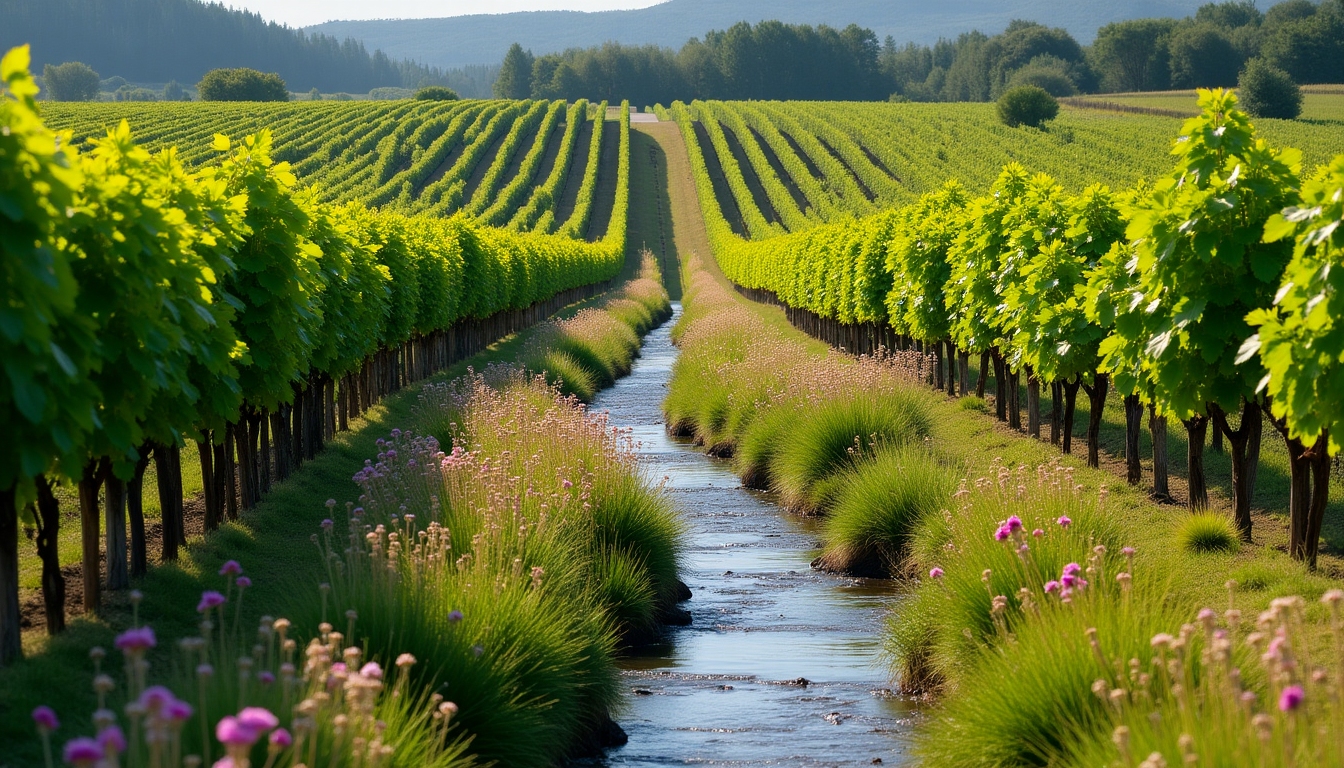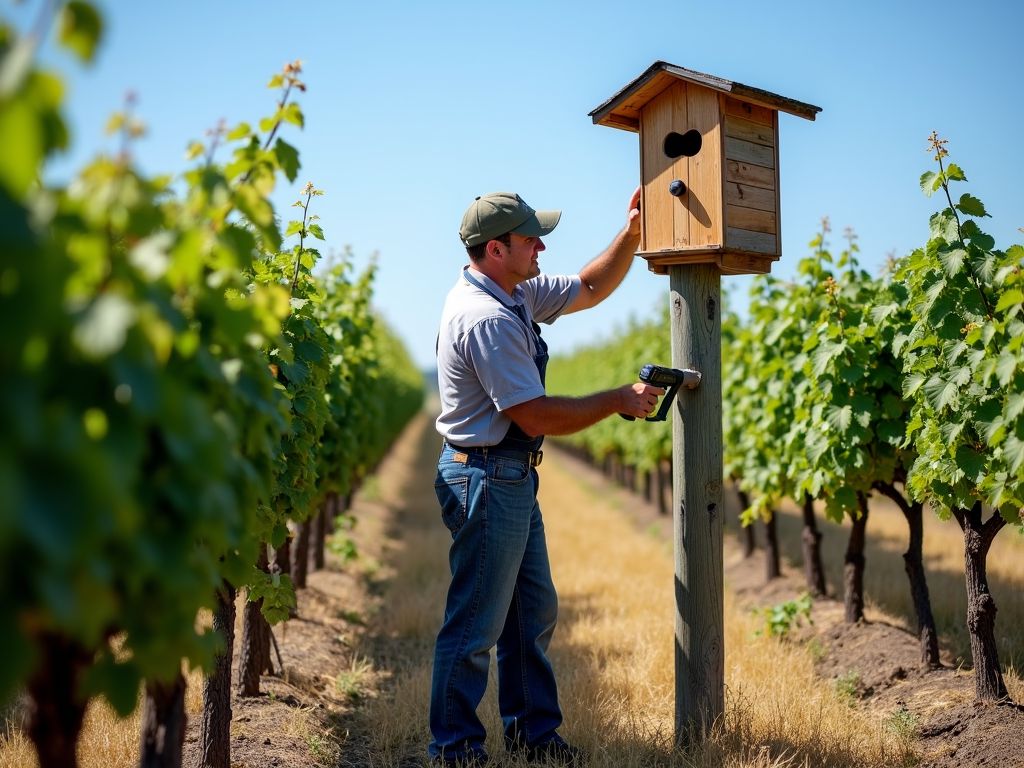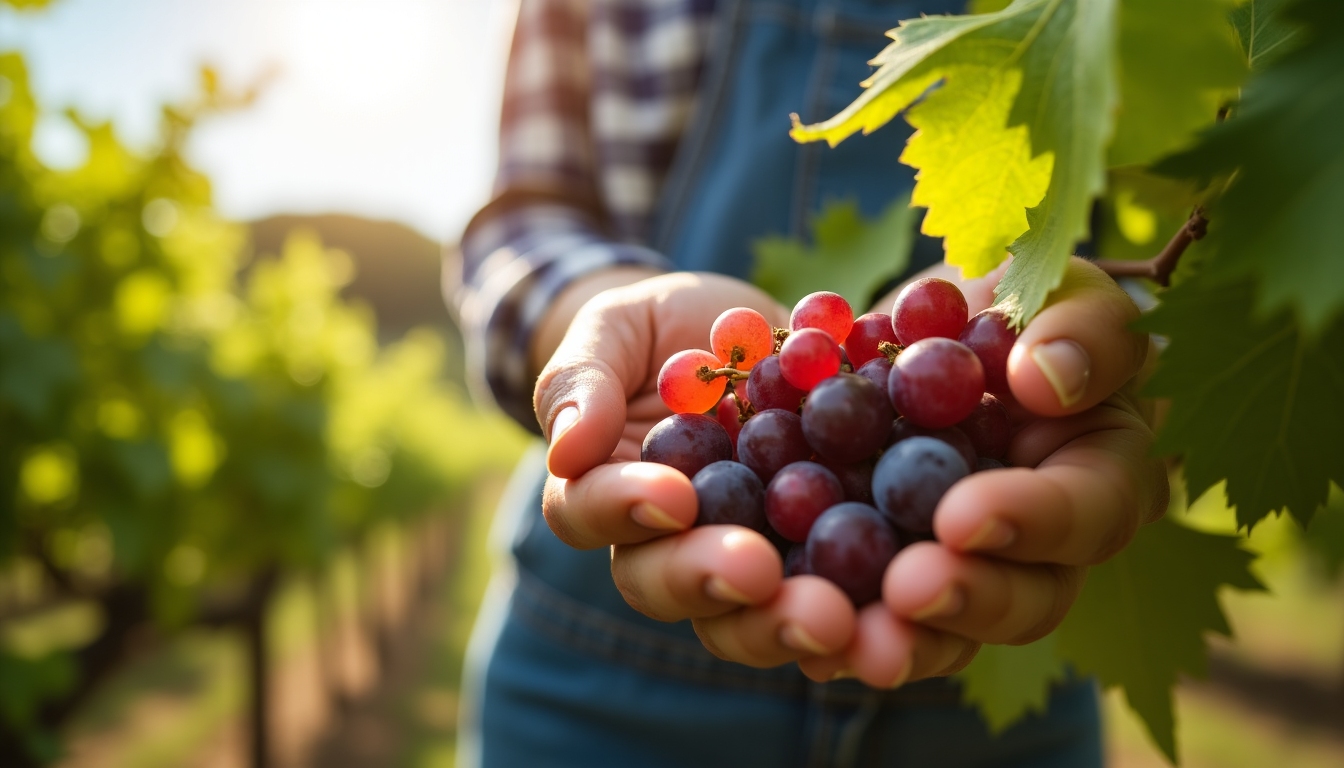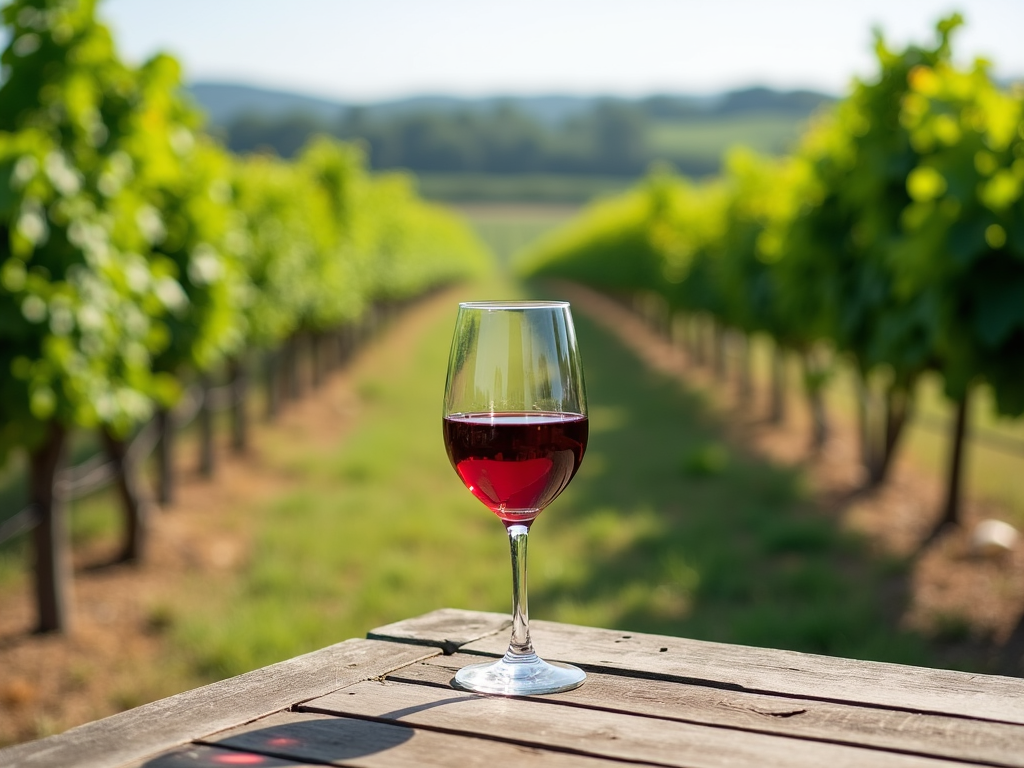The Role of Biodiversity in Sustainable Vineyards
Overview
Biodiversity is vital to sustainable vineyards. It strengthens ecosystems, improves soil, and can even make wine taste better. This article dives into how diverse plants and animals create eco-friendly winemaking.
What Is Biodiversity and Why Does It Matter?
Biodiversity means having lots of different plants, animals, bugs, and tiny organisms living together. In nature, this variety keeps everything in balance. For vineyards, it’s a big deal because it helps the land stay healthy without needing tons of chemicals. Think of it like a team: each player has a role, from pollinating flowers to keeping pests in check. Sustainable vineyards lean on this teamwork to grow strong grapes while caring for the planet. Plus, it ties right into The Role of Biodiversity in Sustainable Vineyards—it’s the backbone of going green in wine country.

How Biodiversity Helps Vineyards Thrive
Biodiversity does some heavy lifting in vineyards. First, it tackles pests naturally. Ladybugs munch on aphids, and birds swoop in to eat harmful bugs, cutting down on pesticide use. Second, it boosts soil health. Plants like clover or grasses grow between vine rows—called cover crops—and their roots stop soil from washing away. They also add nutrients, so the ground stays fertile. Studies show that vineyards with diverse plants can cut erosion by up to 50%. And here’s a fun perk: some winemakers say this mix of life adds unique flavors to their wine, giving it that special something.
Real-Life Example: Jackson Family Wines
Take Jackson Family Wines, a leader among wine brands pushing for sustainability. They’re big on biodiversity in their organic vineyards. They plant cover crops to feed the soil and set up owl boxes to invite owls that hunt rodents—no poisons needed. I read in their sustainability report that these steps have made their vines healthier and their grapes tastier. Jackson Family Wines and organic vineyards go hand in hand, showing how nature-friendly choices pay off. It’s inspiring to see a big name prove that green practices work.

Sustainability in Winemaking Explained
So, what’s sustainability in winemaking all about? It’s growing grapes and making wine in ways that don’t harm the earth. Think saving water, using solar power, and—you guessed it—boosting biodiversity. Diverse plants help soil hold water better, which means less irrigation. Fewer chemicals mean cleaner rivers nearby. Plus, customers love it. More people want wine that’s good for the planet, and brands that embrace this stand out. Sustainability in Winemaking Explained like this shows how biodiversity isn’t just nice—it’s smart business too.
The Numbers Tell the Story
Here’s some proof biodiversity works:
- Pest Control: Vineyards with diverse insects cut pesticide use by 30%, per a California study.
- Soil Health: Cover crops boost organic matter in soil by 20% over five years.
- Water Savings: Diverse root systems reduce runoff by 40%.
These stats show how The Role of Biodiversity in Sustainable Vineyards isn’t just talk—it delivers results you can measure.

My Take: Seeing Biodiversity in Action
I’ve walked through vineyards myself, and the difference is clear. In one near Napa, wildflowers buzzed with bees, and the air felt alive. The winemaker there told me how cover crops saved his vines during a drought—the soil stayed moist when others dried out. Another time, I chatted with a sommelier who swore wines from biodiverse vineyards taste richer, like the land itself shines through. It’s not always easy to start—planting cover crops or building habitats takes work—but every grower I met said it’s worth it for the long haul.
Challenges and Solutions
Switching to biodiversity isn’t a snap. It costs money upfront for seeds or nesting boxes, and some farmers worry about weeds sneaking in with cover crops. But there are fixes. Start small—plant a few rows and test it. Partner with local experts for advice. Over time, savings on chemicals and healthier vines balance the books. I’ve seen small wineries thrive this way, proving you don’t need to be a giant like Jackson Family Wines to make it work.

Why It Matters for Wine Lovers
If you enjoy wine, biodiversity affects you too. Wines from sustainable vineyards often have a story—a taste tied to the land. They’re made with less harm to nature, so you’re sipping something that’s good all around. Next time you pick a bottle, check if the winery cares about this stuff. Brands like Jackson Family Wines make it easy to spot the eco-friendly ones. It’s a small choice that supports a big idea.
Wrapping Up
Biodiversity powers sustainable vineyards in amazing ways. It fights pests, nurtures soil, saves water, and can even lift wine quality. From Jackson Family Wines to small growers, it’s clear this approach builds a better future for winemaking. Nature and wine go together—let’s keep it that way.
